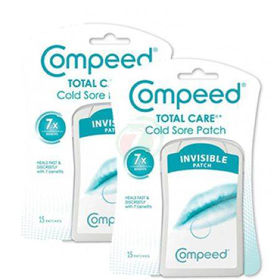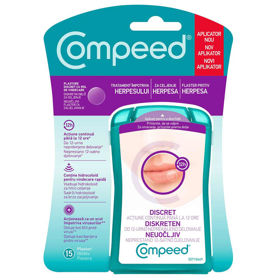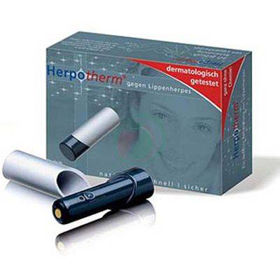Customer question:
What types of herpes do we know? Anonymous customer's question
Pharmacist's answer:
Several types of herpes viruses can develop.
Among the most important are:
- Herpes simplex virus type 1 (HSV-1) usually causes cold sores (a viral infection called cold on the lips or oral herpes). HSV-1 can also cause genital herpes, although there have been some changes related to its transmission in recent decades.
- Herpes simplex virus type 2 (HSV-2): HSV-2 usually causes genital herpes, but it can be transmitted also on the face and even causes oral herpes. Genital herpes is a sexually transmitted disease.
- Zonles (Varicella-zoster virus): this virus causes chickenpox (an infection also called varicella) and can later cause a disease called shingles (herpes zoster). After getting over chicken pox, the virus remains in the body and can reactivate as shingles.
- Epstein-Barr virus (EBV) is related to cytomegaloviruses and causes mononucleosis (an infection also called kissing).
- Cytomegalovirus (CMV): CMV can cause a variety of symptoms, including fever, fatigue, eye inflammation, and more symptoms. CMV infection is common and usually does not cause severe problems in healthy people.
- Herpesvirus type 6 (HHV-6): HHV-6 can be associated with rashes in children and causes sixth disease, also known as three-day fever or exanthem subitum.
- Herpesvirus type 7 (HHV-7): HHV-7 is similar to HHV-6 and may play a role in some skin rashes.

It is essential to understand that specific herpes viruses are associated with a specific type of infection. Herpes infections are prevalent, and most people carry at least one type of this virus.
How to identify genital herpes?
Genital herpes is a sexually transmitted infection caused by herpes simplex virus type 1 (HSV-1) or type 2 (HSV-2). Symptoms of genital herpes can vary from mild to severe and may appear soon after infection or may not appear until several weeks or months later.
Below are some common symptoms of genital herpes:
- Pain and itching: The first symptoms of genital herpes include frequent itching, burning, or pain in the genital or anal area.
- Rashes or blisters: Small blisters or rashes appear together or individually. These blisters can subsequently burst and form open sores, which can then form into scabs.
- Pain when urinating: Genital herpes can cause pain or burning during urination.
- Swollen lymph nodes: The infection can cause swollen and tender lymph nodes in the groin.
- General malaise: some people may experience general symptoms such as fever, headache, fatigue, and muscle aches.
It is important to note that genital herpes can also cause asymptomatic infection, which means that some people may not have visible symptoms but can still transmit the virus to others.
If you suspect that you have genital herpes or if you notice any symptoms that may be related to genital herpes, consult your doctor. A doctor can diagnose based on a review of symptoms, clinical examination, and possible laboratory tests. Treatment usually includes antiviral drugs prescribed by a doctor.
What does oral herpes look like?
Oral herpes is often the result of infection with herpes simplex virus type 1 (HSV-1). Oral herpes usually appears on or around the lips, but in some cases, it can also appear on other parts of the face or inside the mouth. The virus is transmitted through contact with infected secretions, for example, by kissing or using the same objects (e.g., towels, towels for drinking) as an infected person.
Symptoms of oral herpes include:
- Blisters or rashes: Small, painful blisters or rashes appear on the lips or around the mouth.
- Itching and burning: Before the blisters appear, you may experience itching, burning, or discomfort in the affected area.
- Sores and scabs: Blisters often burst and form open sores. These wounds then gradually heal and form scabs.
- Swelling and redness: Swelling and redness may occur around the affected area.
- Pain or discomfort: Pain or discomfort is a common symptom, especially during the blistering phase and when the wounds are open.
It is essential to avoid contact with infected areas to prevent the spread of the virus. If you have frequent outbreaks of oral herpes or if the symptoms last for a long time, consult your doctor. Antiviral medications can also help reduce the intensity and duration of outbreaks.
Interesting reading: The best remedy against herpes you have at home
Interesting reading: Herpes on the lip













